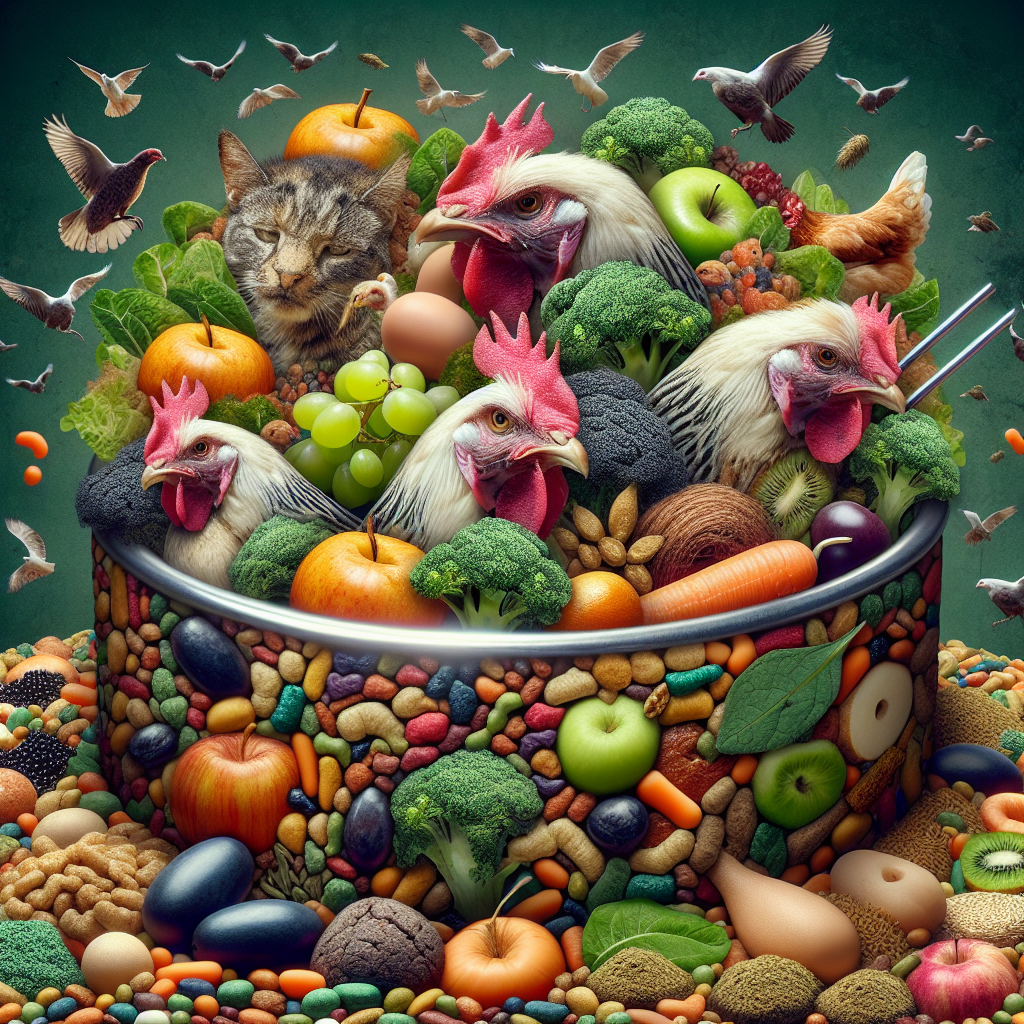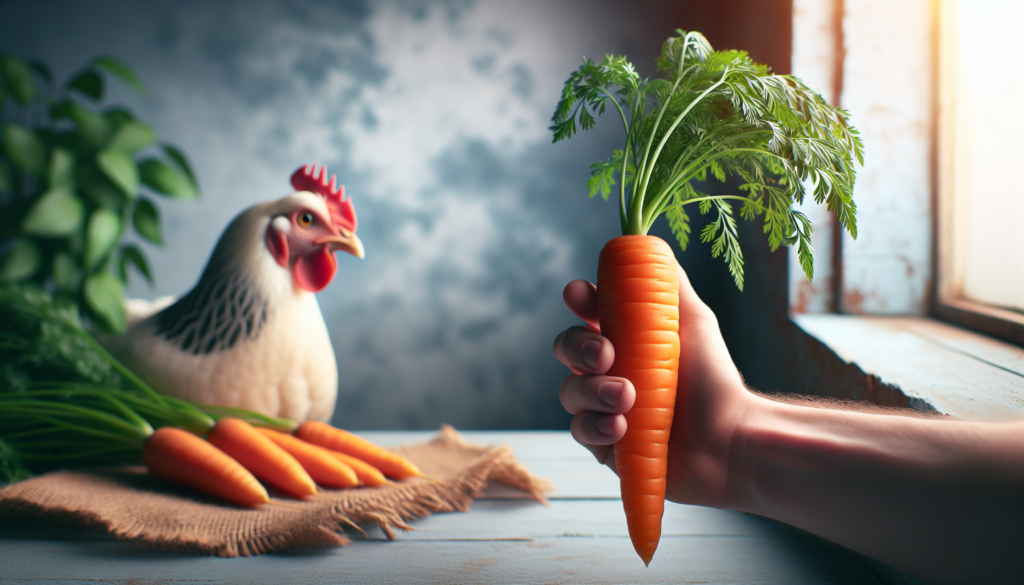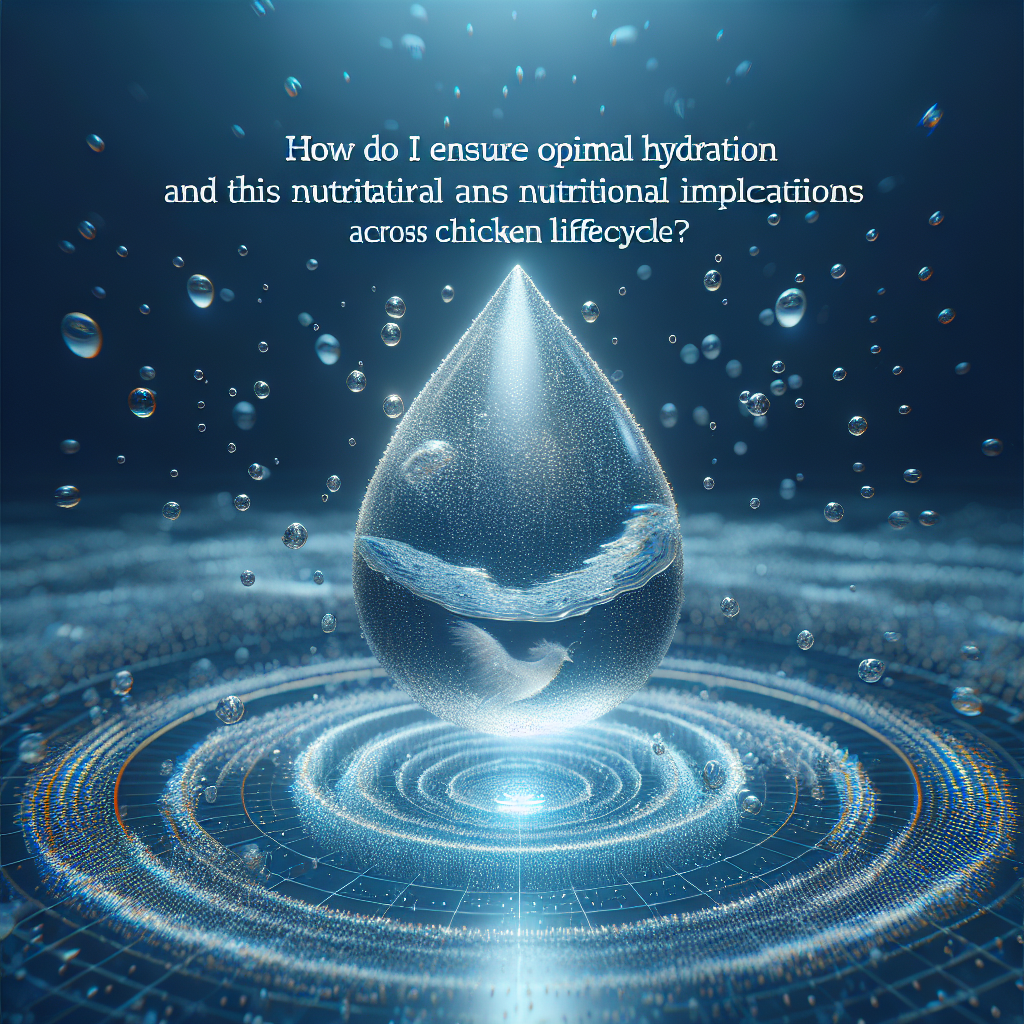In this article, you will discover effective strategies for managing the dietary needs of elderly chickens who may be facing potential health challenges. As chickens age, their nutritional requirements change, and it becomes crucial to provide them with the appropriate diet to maintain their health and wellbeing. By understanding the unique needs of elderly chickens and implementing smart feeding practices, you can ensure their longevity and quality of life. So, let’s explore some practical tips and insights to help you navigate this important aspect of caring for your feathered friends.
Assessing the Health Needs of Elderly Chickens
Determining the age of the chickens
As a chicken owner, it is important to accurately determine the age of your birds. This information will help you better understand their specific health needs as they age. One method to identify the age of chickens is by looking at their physical characteristics. For example, the presence of soft, pliable feathers indicates a young chicken, while dry and stiff feathers suggest an older bird. Additionally, examining their legs and spurs can provide insights into their age, as younger chickens will have smoother legs and smaller spurs compared to older ones.
Identifying potential health challenges
Elderly chickens are more prone to several health challenges, including weight management issues, arthritis, joint problems, and cardiovascular health concerns. Identifying these potential health challenges early on is crucial in ensuring the well-being of your chickens. Regular observation of their behavior, activity levels, and physical appearance can help you spot any signs of distress or decline in health. Detecting symptoms such as sudden weight loss, lethargy, difficulty moving, or changes in appetite can prompt you to take necessary actions.
Consulting a veterinarian
When it comes to the health needs of elderly chickens, it is always advisable to consult a veterinarian who specializes in avian care. A veterinarian can provide professional guidance and advice tailored to your chickens’ specific needs. They can perform thorough health evaluations, make accurate diagnoses, and suggest appropriate treatments. Regular visits to a veterinarian can also help you stay informed about the latest research and best practices for caring for elderly chickens.
Understanding the Nutritional Requirements of Elderly Chickens
Balancing protein and energy intake
Proper nutrition is crucial for maintaining the health and well-being of elderly chickens. As chickens age, their protein and energy requirements change. It is essential to provide a balanced diet that meets these changing needs. Including high-quality protein sources such as poultry feed formulated specifically for older chickens can help maintain muscle mass and prevent muscle wasting. Additionally, adjusting the energy content of their diet by reducing fat intake and increasing complex carbohydrates can support their overall health.
Providing essential vitamins and minerals
Elderly chickens need adequate amounts of vitamins and minerals to support their immune system, bone health, and overall vitality. Incorporating a variety of nutrient-rich foods into their diet can help achieve this. Vitamin supplements may also be recommended by a veterinarian, especially if there are deficiencies detected in blood tests. Key vitamins and minerals to prioritize include vitamin D, calcium, phosphorus, and potassium, all of which play vital roles in maintaining their health and preventing ailments.
Ensuring adequate fiber intake
Fiber is an essential component of a chicken’s diet, even in their senior years. It aids in digestion, prevents constipation, and promotes overall gut health. Including fibrous foods such as leafy greens, fruits, vegetables, and high-quality forages can help provide the necessary fiber content for elderly chickens. Additionally, offering grit and oyster shell can assist in their digestion process, as these substances aid in grinding and absorbing nutrients.
Designing a Balanced Diet for Elderly Chickens
Choosing high-quality commercial poultry feed
One of the easiest ways to ensure a balanced diet for elderly chickens is by choosing a high-quality commercial poultry feed specifically formulated for their age group. These feeds are often fortified with essential vitamins, minerals, and probiotics to support their specific health needs. It is vital to carefully read the labels and choose feeds that list appropriate ingredients and nutrient content to meet the nutritional requirements of elderly chickens. Consulting a veterinarian or experienced poultry breeder can help you make an informed decision.
Including sources of easily digestible protein
Elderly chickens may have diminished digestive capacity, making it crucial to provide easily digestible sources of protein. Cooked eggs, cottage cheese, and lean meats are excellent options for incorporating easily digestible protein into their diet. These protein sources are not only highly nutritious but also easier on their digestive system, ensuring optimal nutrient absorption. It is essential to monitor their response to these protein sources and adjust the quantities based on their individual health conditions.
Incorporating nutrient-rich fruits and vegetables
To provide a diverse and well-rounded diet for elderly chickens, incorporating a range of fruits and vegetables is highly beneficial. Items such as leafy greens (kale, spinach), carrots, berries, and apples can provide important vitamins, minerals, and antioxidants. These colorful additions contribute to the overall nutritional profile of their diet and can help boost their immune system. However, it is important to introduce new foods gradually, as sudden dietary changes can upset their digestive system.
Adjusting the Diet for Chickens With Specific Health Challenges
Dealing with weight management issues
Weight management is a common challenge in elderly chickens. Obesity can lead to various health problems and a decreased quality of life. To address weight management issues, it is important to provide a low-fat and low-calorie diet. This can be achieved by reducing the amount of high-energy treats and incorporating more fibrous foods and lean protein sources into their diet. It may also be necessary to limit access to food during specific times of the day to control their calorie intake.
Managing arthritis and joint problems
Arthritis and joint problems are prevalent in elderly chickens, causing discomfort and reduced mobility. Adjustments to their diet can help alleviate these issues. Including supplements like glucosamine and chondroitin can support joint health and reduce inflammation. Additionally, providing softer substrates such as straw or thick layers of bedding can cushion their joints and make movement less painful. Regular exercise and gentle stretching can also help maintain their joint flexibility.
Addressing cardiovascular health concerns
Elderly chickens can experience cardiovascular health concerns, such as high blood pressure and heart diseases. A heart-healthy diet for chickens should include low-sodium options such as low-salt poultry feed. Increasing the consumption of foods rich in heart-healthy nutrients, such as omega-3 fatty acids, can promote optimal cardiovascular health. Also, ensuring a diet low in saturated and trans fats is important in preventing the development or progression of cardiovascular ailments.
Feeding Tips for Elderly Chickens
Providing frequent, small meals
Elderly chickens may benefit from frequent, smaller meals throughout the day. Offering food in smaller quantities at regular intervals helps prevent overeating and aids in better digestion. It also ensures that all chickens have equal access to food, especially if there are any individuals with mobility or hierarchy issues. Observing their eating habits and adjusting the feeding schedule accordingly can help maintain their overall health and prevent weight-related problems.
Offering easily digestible treats
Treats can be a delightful addition to an elderly chicken’s diet, but it is essential to choose treats that are easily digestible. Some options include cooked vegetables, fruits, or small pieces of scrambled eggs. These treats should be offered in moderation, considering their nutritional needs and specific health challenges. Monitoring their response to treats and adjusting the quantities accordingly is key to maintaining a balanced diet while still providing them with enjoyable snacks.
Monitoring water consumption
Water is a crucial component of a chicken’s diet, and elderly chickens may require extra attention in this area. Monitoring their water consumption ensures they stay hydrated and prevents potential health issues. It is important to provide fresh, clean water at all times and ensure the water container is suitable for their size and age. Regularly checking the water container for cleanliness and refilling it as needed helps guarantee their access to clean drinking water throughout the day.
Ensuring Optimal Hydration for Elderly Chickens
Choosing the right water container
Selecting the appropriate water container is crucial in ensuring optimal hydration for elderly chickens. It should be large enough to accommodate their size and allow easy access for drinking. Whether you choose a waterer with a nipple attachment or a shallow dish, it is important to regularly clean and sanitize the container to prevent the growth of harmful bacteria. Providing multiple water stations may be necessary to accommodate birds with mobility issues or those who struggle with the pecking order.
Maintaining water cleanliness
Clean, fresh water is essential for the health and well-being of elderly chickens. Water containers should be cleaned regularly to prevent the buildup of algae, dirt, and bacteria. Scrubbing the container with a mild detergent and rinsing it thoroughly before refilling can help maintain optimal water quality. Using filtered or dechlorinated water may also be beneficial in areas with poor water quality. Regularly monitoring the cleanliness of the water source contributes to the overall health of your chickens.
Monitoring water intake
Monitoring your elderly chickens’ water intake is crucial for ensuring their optimal hydration. It is important to establish their normal water consumption patterns to identify any changes or abnormalities. Decreased water intake can be a sign of health issues or dehydration, while increased consumption may indicate the presence of an underlying health problem. Regularly observing their water consumption and making note of any significant changes can help you detect potential health concerns early on.
Supplementary Measures for Supporting Elderly Chickens’ Health
Using probiotics and supplements
Probiotics and dietary supplements can provide additional support to the health of elderly chickens. Probiotics aid in maintaining a healthy gut microbiome, improving digestion, and enhancing nutrient absorption. Supplements such as omega-3 fatty acids, vitamins, and minerals can offer targeted support for specific health concerns. However, it is advisable to consult with a veterinarian before introducing any supplements to ensure they are appropriate for your chickens and do not interact with any existing medications or health conditions.
Incorporating herbs and natural remedies
Herbs and natural remedies can offer additional health benefits for aging chickens. Certain herbs such as garlic and oregano have antimicrobial properties and can support their immune system. Others like ginger and turmeric can help alleviate inflammation and promote joint health. It is important to research and understand the proper dosage and administration methods for herbs and natural remedies. Discussing your choices with a veterinarian or avian specialist is advised to ensure the safety and efficacy of these additions.
Arranging suitable living conditions
Creating suitable living conditions for elderly chickens is essential for their overall well-being. Providing sufficient shelter and protection from extreme weather conditions is crucial to prevent undue stress on their health. Comfortable bedding, proper ventilation, and ample space for movement are important factors to consider in their living environment. In addition, maintaining cleanliness in their living quarters and regularly disinfecting their coop help minimize the risk of disease transmission and promote a healthy living environment.
Monitoring the Health and Progress of Elderly Chickens
Observing behavior and activity levels
Regular observation of your elderly chickens’ behavior and activity levels is key to monitoring their health and progress. Changes in behavior, such as increased lethargy, decreased mobility, or social withdrawal, can indicate underlying health issues. Monitoring their daily routines, interactions with other chickens, and overall energy levels provide valuable insights into their well-being. Any significant changes should be documented and discussed with a veterinarian to address any potential health concerns promptly.
Regular health check-ups
Scheduling regular health check-ups with a veterinarian is crucial for the ongoing care of elderly chickens. These check-ups allow for thorough assessments of their health, including physical examinations, blood tests, and specialized diagnostic procedures if necessary. Regular visits also provide an opportunity to discuss any specific concerns, review dietary plans, and receive recommendations for optimizing their well-being. Establishing a good relationship with a trusted veterinarian who specializes in avian care will greatly benefit the long-term health of your elderly chickens.
Keeping records of dietary changes and effects
Maintaining detailed records of dietary changes and their effects on your elderly chickens is essential for evaluating their progress and making informed decisions. Note down any modifications made to their diet, including changes in protein sources, treats, or supplements, along with any observed changes in their behavior or health. This record-keeping enables you to identify successful dietary adjustments, monitor the efficacy of specific treatments, and track any trends or patterns that may emerge regarding their health and dietary needs.
Potential Challenges and Troubleshooting
Encouraging picky eaters
Encouraging picky eaters can be a challenge, especially in elderly chickens with potential health concerns. Experimenting with different textures, flavors, and preparations of food can help stimulate their appetite. Mixing new foods with familiar ones or hand-feeding certain treats can entice them to eat. Patience, persistence, and finding their preferred food preferences are key to overcoming picky eating habits. If the picky eating persists or is accompanied by other signs of ill health, consulting a veterinarian is recommended.
Managing food aggression
Food aggression can arise in a flock of elderly chickens and can lead to unequal distribution of nutrients and potential injuries. To manage food aggression, it may be necessary to provide multiple feeding stations, spaced apart, to allow each chicken fair access to food. Separating birds with aggressive tendencies during feeding time may also be necessary. Additionally, designing a feeding system that ensures all chickens have equal access to food, such as using a treadle feeder, can help prevent food aggression and promote a calm feeding environment.
Modifying the diet with medication interactions
If your elderly chickens require medication, it is important to be aware of any potential interactions with their diet. Some medications can impact the absorption or effectiveness of certain nutrients or may require specific dietary adjustments. Discussing medication interactions with a veterinarian is crucial to ensure the optimal administration and effectiveness of the prescribed medications. They can provide guidance on any necessary diet modifications and advise on the appropriate timing of medication administration in relation to meal times.
Final Thoughts on Managing Dietary Needs of Elderly Chickens
Managing the dietary needs of elderly chickens with potential health challenges requires careful attention, observation, and proactive measures. Assessing their health needs, understanding their nutritional requirements, and designing a balanced diet are all crucial steps. Adjusting the diet to address specific health challenges and ensuring proper hydration are essential for their well-being. Supplementary measures, monitoring their health, and troubleshooting challenges further contribute to their overall care. By incorporating these practices, you can support the longevity and quality of life of your beloved elderly chickens.




